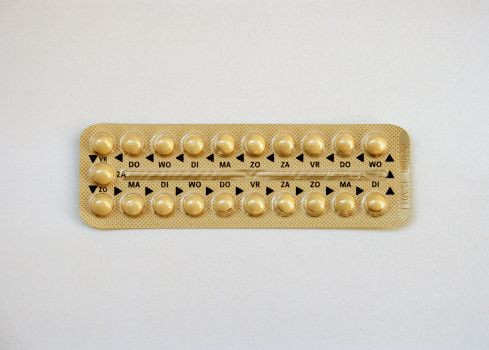Nuclear Scientist Created World’s First Birth-Control App As A Hobby

You may wonder what sort of hobbies nuclear physicist Elina Berglund Scherwitzl, who was part of the team that discovered the Higgs boson, enjoys during her free time. You may assume the Swedish CERN scientist may enjoy skiing, or perhaps tennis.
In fact, her hobby project was the first app in the world to be certified as a contraceptive. Using data analysis and complex math, Berglund Scherwitzl developed an algorithm that could pinpoint the time when a woman would start ovulating through a thermometer.
Read: Birth Control In Texas: Nurx App Delivers To Women In 'Contraceptive Desert'
"Like many women, I had tried many different contraception options since my teenage years and hadn't really found a solution that fit me," she said, the BBC reported.
"It was in my quest for an effective natural alternative that I discovered that you can see when you're fertile by your temperature, and for me, that was really a revelation," Berglund Scherwitzl added.
In order to help women all over the world, she and fellow physicist husband Raoul Scherwitzl started their own business, Natural Cycles.
It helped that the CERN team found the Higgs boson particle in 2012, which gave the couple the time to come up with the app.
"A lot is about coincidence and also timing. We had just got married. The experiment was shutting down for a couple of years and I was thinking, 'If I would ever try something outside of physics, now would be the time,' said Berglund Scherwitzl.
"My husband had always wanted to become an entrepreneur, so he suggested, 'Okay let's leave physics and make this algorithm into an app'," she added.
However, the road toward getting the app — launched in 2014 — to reach its targeted consumers was not straightforward, and it was banned from being marketed in 2015 after initial approval from the Swedish Medicinal Products Agency.
Reports the app encouraged risky behavior among young women in Sweden led to its approval being revoked, the BBC reported.
"Since I came from the scientific angle I thought that if I just create a product that's really good, it will sell itself and everyone will trust it. I realize that that's not at all the case," she said.
In February 2017, however, it became the first app in the world to be certified as a contraceptive, after Tuv Sud — a German inspection and certification organization — approved it for use across the EU.
According to a Guardian report, Berglund Scherwitzl said the ideal user was a woman in a stable relationship, and who preferred a break from hormonal contraception and would like to have kids someday.
To this end, she admitted the app relied on the woman to follow its instructions closely. The thermometer-and-algorithm app lets women know their “safe” days in green, and days that they could become pregnant in red, the Guardian reported.
A clinical study — the largest of its kind and involving over 4,000 women — published in the European Journal of Contraception and Reproductive Health Care led the app being billed "as effective as the pill."
Read: Birth Control Flushed Down Drains Creating 'Transgender' Fish
According to Berglund Scherwitzl, she was motivated by the one-sided responsibility in relationships when it came to birth-control.
“Sweden is supposed to be the most gender-equal country, but I think when it comes to contraception… the burden is very much on the woman,” she said, according to the Guardian.
She termed the app as “more of a couple’s thing — the woman measures her temperature and the man sometimes has to wear a condom.”
The Stockholm-based company now has 30 employees, and the couple hopes to take the app to developing nations, where contraception sometimes faces religious barriers.
© Copyright IBTimes 2025. All rights reserved.






















